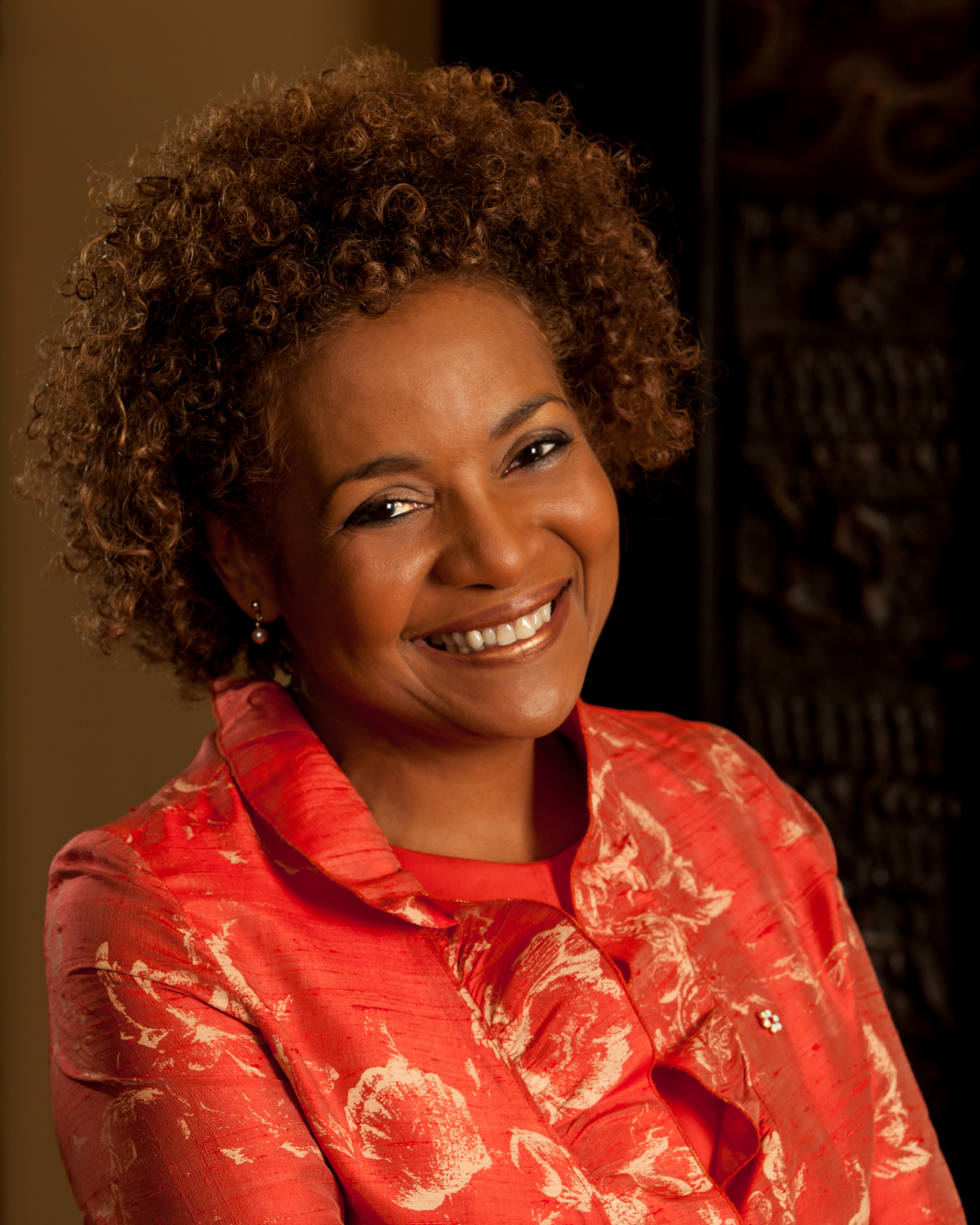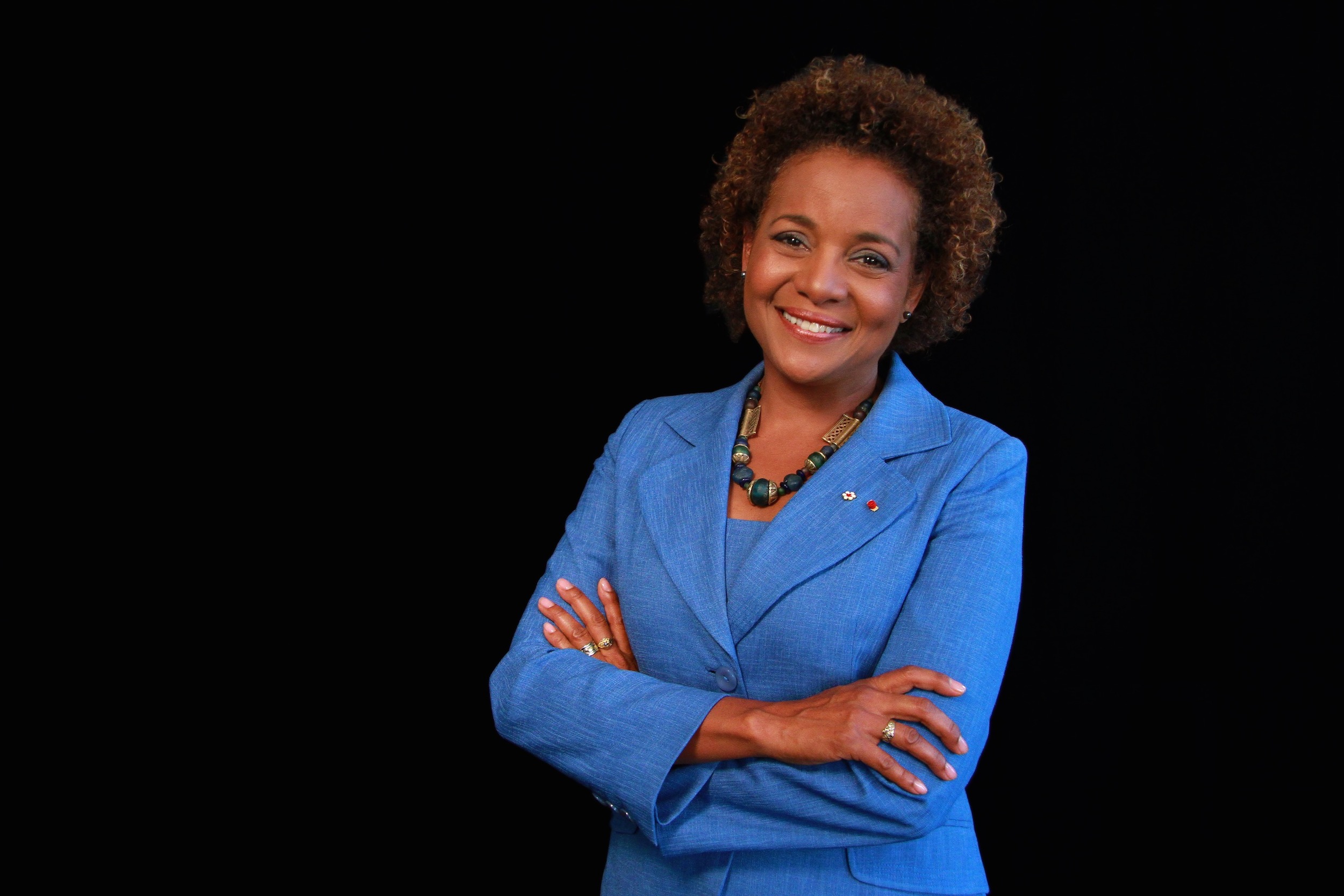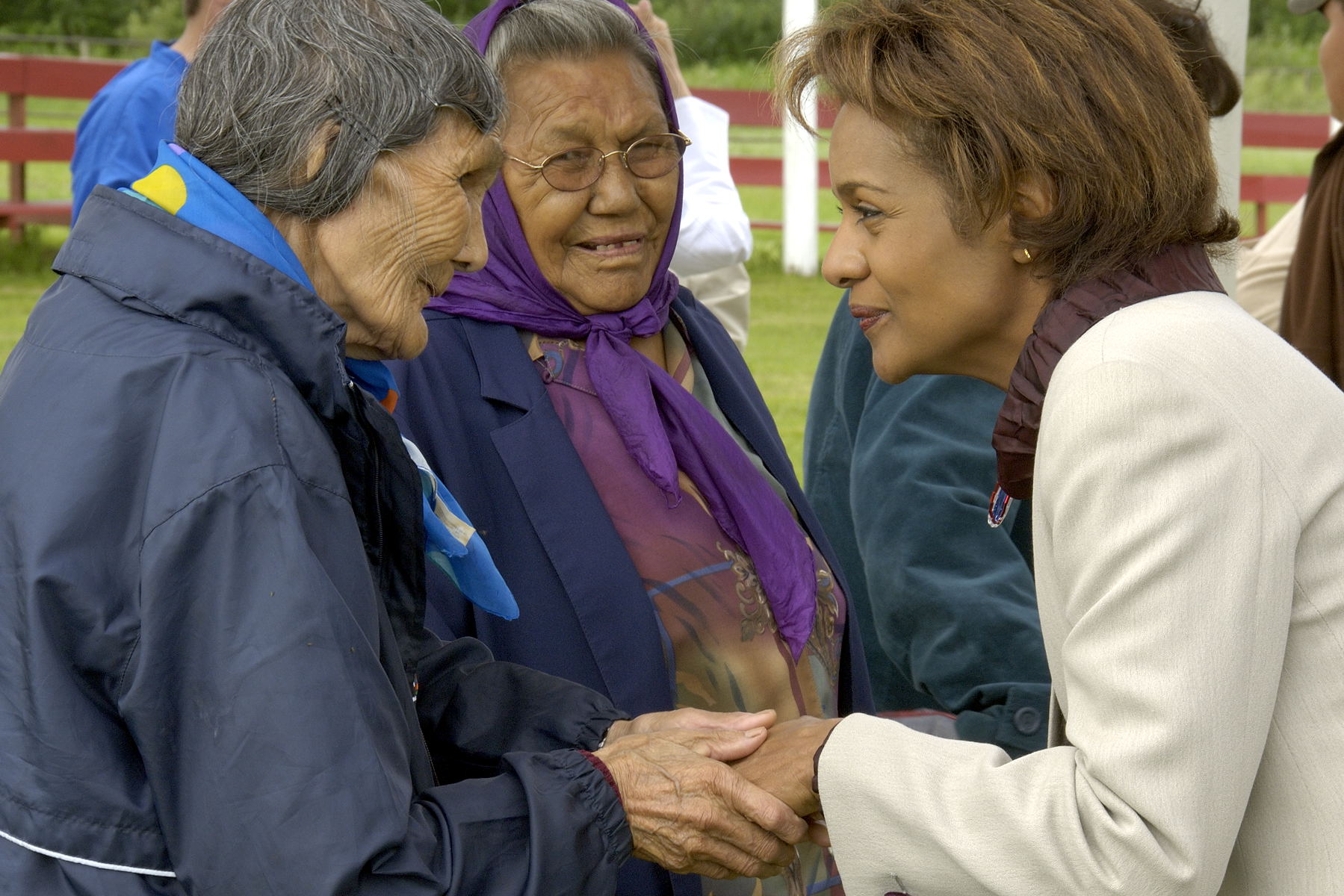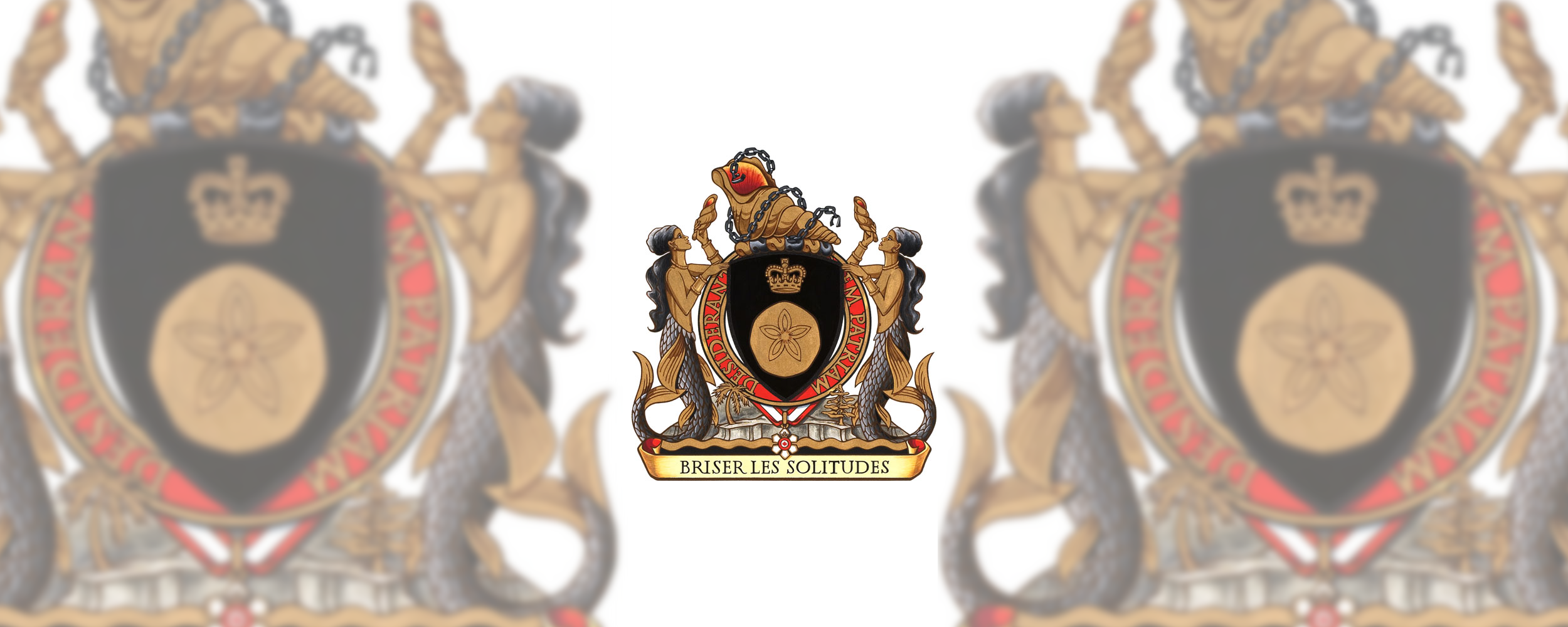
The Thread of My Life
Biographical Sketch
The Thread of My Life
Awareness of one's roots, of one's own place on the arc of history is critical. My life is intimately intertwined between South and North, between lands of resistance, and the legacies of formidable struggles.
I was born September 6, 1957, in Port-au-Prince, Haiti. That same year, François "Papa Doc" Duvalier rises to power and installs a most repressive, decadent, and extremely brutal dictatorial regime. The country is draped in barbed wire by the baneful "Macoute" armed militia. I remember the dead silence, the public executions, the disappearances, the arbitrary detentions, the horribly puffed up face of my father upon his release from torture, his clothes soaked in blood, his own and his cellmate's, who died in his arms. My family, as thousands of others, was forced to flee.
Canada gave us asylum, a safe haven, the possibility of rebuilding our lives in a province, Quebec, where French, the language we practised, was spoken by a large majority. My parents, both of them teachers, will be able to work, and give the best of themselves. Further, Canada offers us full-fledged citizenship: rights, freedoms and responsibilities that we will uphold with gratitude, pride and dignity.
While I studied modern languages and comparative literature at the University of Montreal — where I went on to teach Italian and Italian literature — activism within the Quebec feminist movement would become a major part of my working life. Over a decade, I will work towards a recognition of the situation and needs of thousands of women targeted by domestic abuse, and those of their children. That is how I contributed to the creation of a vast network of shelters, resources and emergency services for abused women. This network will eventually extend throughout Quebec, and across other Canadian provinces. The struggle for women's rights was for me an incredible school, an opportunity to scrutinize intently our mindsets, the ways we are conditioned, our values, our policies, the failings of our institutions and society, and the civil society forces we must unite to sensitize, educate and bring about social change.
In 1986, Jean-Claude Duvalier, scion of his father's self-proclaimed presidency for life, is ousted from power through a groundswell of civic pressures. I return to Haiti, in the elation of a newly liberated country, where high hopes were again possible. I observe, I listen, I write articles that testify to the upheaval. I am back again in 1987, this time with Egyptian-born Canadian filmmaker Tahani Rached and a team from the National Film Board of Canada, to take part in a documentary on the first free elections in Haiti since 1957. The nightmare returns in the form of blind violence from Duvalier supporters within the military, a terrible bloodshed.
The experience is shattering. It convinces me of the power of narrative journalism, practised as a civic responsibility. Soon after, I join the French-speaking public television network of the CBC/Radio-Canada, where I become the first Black journalist in the news department. My presence on television screens stands out. I am aware that doors are being opened, and that is just what I want: for television to open up to diversity, towards a more inclusive society. Some years later, the English-speaking television network of the CBC entrusts me as well with anchoring two weekly broadcasts of Canadian and international documentary features. I also anchor various information programs on the international French-speaking network TV5, focused on news from countries of the Francophonie, and African countries in particular.
My meeting and marriage with filmmaker, writer and philosopher Jean-Daniel Lafond also seals an emotional bond with France, his country of origin. He offers to share with me his open, creative space. I take part in some of his political documentaries: A State of Blackness: Aimé Césaire's Way; Tropic North; Haiti in All Our Dreams, and Last Call for Cuba, all of which earned awards in Canada, and internationally.
On September 27, 2005, I am sworn in as the 27th Governor General and Commander-in-Chief of Canada, only the third woman to be invested with such responsibilities. According to the Canadian Constitution, the Governor General represents the Crown, the highest authority, and bears de facto, outside of any party allegiance, the responsibilities of Head of State. What a powerful signal, for Canada and the world, that a woman of African descent, from Haiti, who came to Canada with her family as political refugees, be called to hold such high office. Quickly, I commit to making this function a space of resonance, where the voices of citizens will be heard, a space for building unity and action. "Breaking down solitudes" is the motto that I chose to express my determination to unify forces across the country, to build bridges between provinces and territories, to show how we can bring down certain barriers, to expose realities that alienate and divide, to pay very close attention to citizen-based actions, to value the vital contributions of women and youth. My appeal centres on inclusive governance, involving every stakeholder from society, the lifeblood of our communities that cannot be ignored on the path to sustainable human development.
“I have forged strong ties and cultivated trust. I believe strongly in political and cultural diplomacy, on a human scale.”
During my five-year mandate, I also travelled on the international stage and conducted 40 state visits around the world, including 10 in Africa. Everywhere, armed with the same determination, I directed the same energy, the same approach based on proximity, the same commitment to engage and facilitate dialogue, to listen and to make other voices heard, to relate and federate, to encourage concerted actions with an ethic of sharing, of solidarity, of fraternity. I have forged strong ties and cultivated trust. I believe strongly in political and cultural diplomacy, on a human scale.
My mandate as Governor General ended in October 2010, the year a terrible earthquake left my native land utterly devastated and grief-stricken. Among some 300,000 dead under the rubble, I also mourned a number of relatives and friends. I helped mobilize relief efforts and, as Commander-in-Chief of the Canadian Armed Forces, supported the deployment of our troops to bring immediate assistance to the areas most affected by the earthquake. My missions on the ground allowed me to assess the full measure of the disaster. A whole nation needs to be rebuilt, our country must be "refounded", said Haitian women and men, and not only its infrastructure, but also its institutions, governance systems, economic strategies, human and natural resources, territorial management, local, regional and national development, to strengthen its capacity, skills and knowledge levels in a sustainable, long-term perspective. The undertaking is massive. The country must and wants to shake off its dependency on foreign aid.
It is without a moment's hesitation that I accepted, at the request of Irina Bokova, Director-General of UNESCO, to act as Special Envoy for Haiti from 2010 to 2014, with a view to supporting concerted efforts and the reconstruction objectives of the Haitian government and population.
From 2012 to 2014, I am also Chancellor of the University of Ottawa, the world's largest bilingual (French and English) university, which also partners with the UNESCO mission in Haiti. In this position, I support and initiate partnership agreements within the framework of a program specifically designed to improve quality training, professionalization, superior education and scientific research within the countries of La Francophonie. For many developing countries aiming for emergence, these partnerships are most timely.
My husband, Jean-Daniel Lafond and I have also established the legacy project from my mandate as Governor General, the Michaëlle Jean Foundation, entirely devoted to the most vulnerable youth in Canada, supporting projects for their own social integration through the power of the arts and culture.
Following the choice made by the Heads of State and Government of the Organisation internationale de la Francophonie gathered at the Dakar Summit in November 2014, I assumed from January 5, 2015, until January 3, 2019, the highest responsibilities of La Francophonie, where I was fully dedicated to serving the ever-active French-speaking community, contributing through it to democracy, rights and freedoms, sustainable economic development for our communities, again aiming to pull all our vibrant forces together to see men and women move forward as equals, and allow youth to be involved, heard and included.
To serve, connect, and unite, such is the thread of my life.


